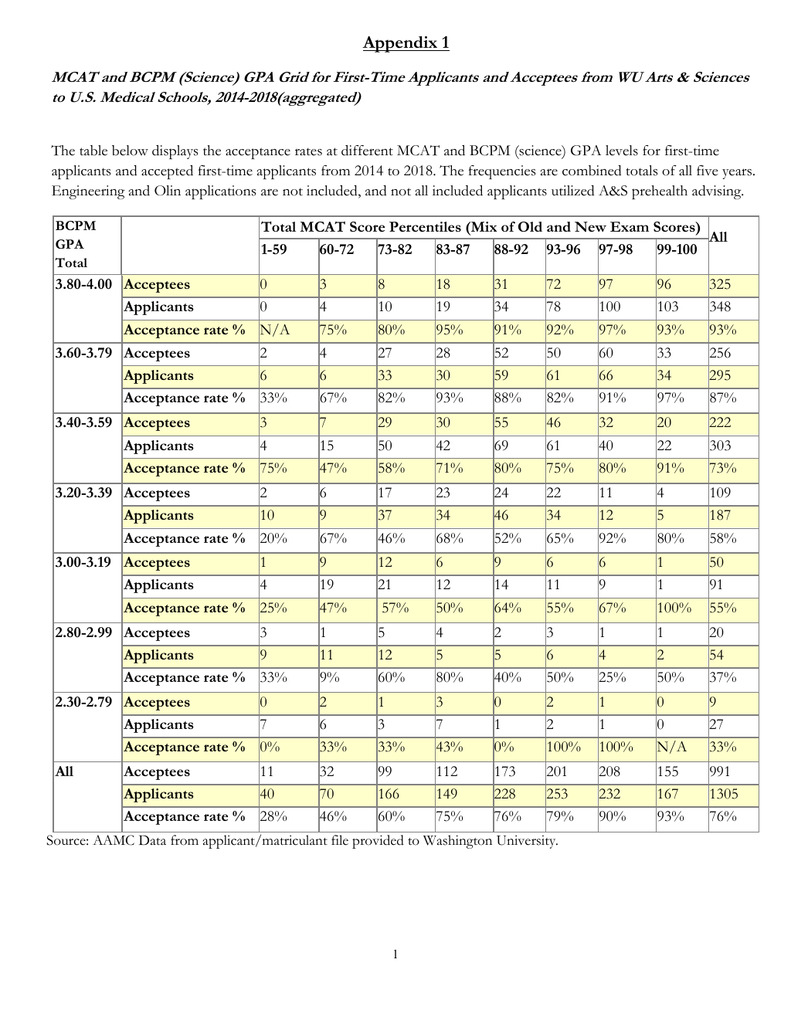BobbyMaye
Full Member
- Joined
- May 2, 2020
- Messages
- 12
- Reaction score
- 1
Hi! I hope you're all doing well.
I just graduated high school in June of this year, ready to attend undergrad in the fall.
I committed to WashU intending to go on the pre-med track (wherever I go, I plan of majoring/researching biochem, but I'm also interested in studying and making a large impact in the area of global health/public health/anthropology/health policy/health education, but tbh I'm really interested in other things such as business and neuro.
One factor I think is important to mention when deciding was that within WashU I was accepted into a really small and very selective program that essentially teaches students about medical anthropology, and gears students towards and career in healthcare for all 4 years of undergrad. The program also helps students gain a community healthcare-related internship and start service-oriented research sometime after your first or second year of college, with better access to anthropology faculty. The students are shown to have good success when applying to medical school coming out of the program.
That being said, I recently found out that I got off the waitlist for Brown. I really like both schools, so I want to make an unbiased decision about where to go for the best chance at top medical schools and also what will help me make the greatest impact in the areas I want to study. I will also note that even though I got off the waitlist late for Brown, there are no consequences to enrolling late. I will be choosing classes at the same time as everyone else. Cost is not a factor as well.
So that's my situation. I'm not sure which school would be the best for me to get into top medical schools and have the best programs/civic impact in the areas I want to study and my career. At first glance with matriculation statistics, both schools are similarly comparable with sending students to top medical programs. That being said, St. Louis and Rhode Island are very different places. I'm not sure if going to an Ivy and its Ivy "connections" (as well as the ability to attain a higher GPA easier) here outweighs WashU, especially in the areas I want to study as well, which is why I'm really stuck and don't have much time to decide. I'm also not sure if the lack of structure at Brown is something that's very beneficial compared to the program I'm already in at WashU, which is why I'm stuck.
Please let me know what you all think, what factors are important, and overall what benefits of one school outweigh the other if possible. I will answer any questions you have. Thank you so much in advance!
I just graduated high school in June of this year, ready to attend undergrad in the fall.
I committed to WashU intending to go on the pre-med track (wherever I go, I plan of majoring/researching biochem, but I'm also interested in studying and making a large impact in the area of global health/public health/anthropology/health policy/health education, but tbh I'm really interested in other things such as business and neuro.
One factor I think is important to mention when deciding was that within WashU I was accepted into a really small and very selective program that essentially teaches students about medical anthropology, and gears students towards and career in healthcare for all 4 years of undergrad. The program also helps students gain a community healthcare-related internship and start service-oriented research sometime after your first or second year of college, with better access to anthropology faculty. The students are shown to have good success when applying to medical school coming out of the program.
That being said, I recently found out that I got off the waitlist for Brown. I really like both schools, so I want to make an unbiased decision about where to go for the best chance at top medical schools and also what will help me make the greatest impact in the areas I want to study. I will also note that even though I got off the waitlist late for Brown, there are no consequences to enrolling late. I will be choosing classes at the same time as everyone else. Cost is not a factor as well.
So that's my situation. I'm not sure which school would be the best for me to get into top medical schools and have the best programs/civic impact in the areas I want to study and my career. At first glance with matriculation statistics, both schools are similarly comparable with sending students to top medical programs. That being said, St. Louis and Rhode Island are very different places. I'm not sure if going to an Ivy and its Ivy "connections" (as well as the ability to attain a higher GPA easier) here outweighs WashU, especially in the areas I want to study as well, which is why I'm really stuck and don't have much time to decide. I'm also not sure if the lack of structure at Brown is something that's very beneficial compared to the program I'm already in at WashU, which is why I'm stuck.
Please let me know what you all think, what factors are important, and overall what benefits of one school outweigh the other if possible. I will answer any questions you have. Thank you so much in advance!


